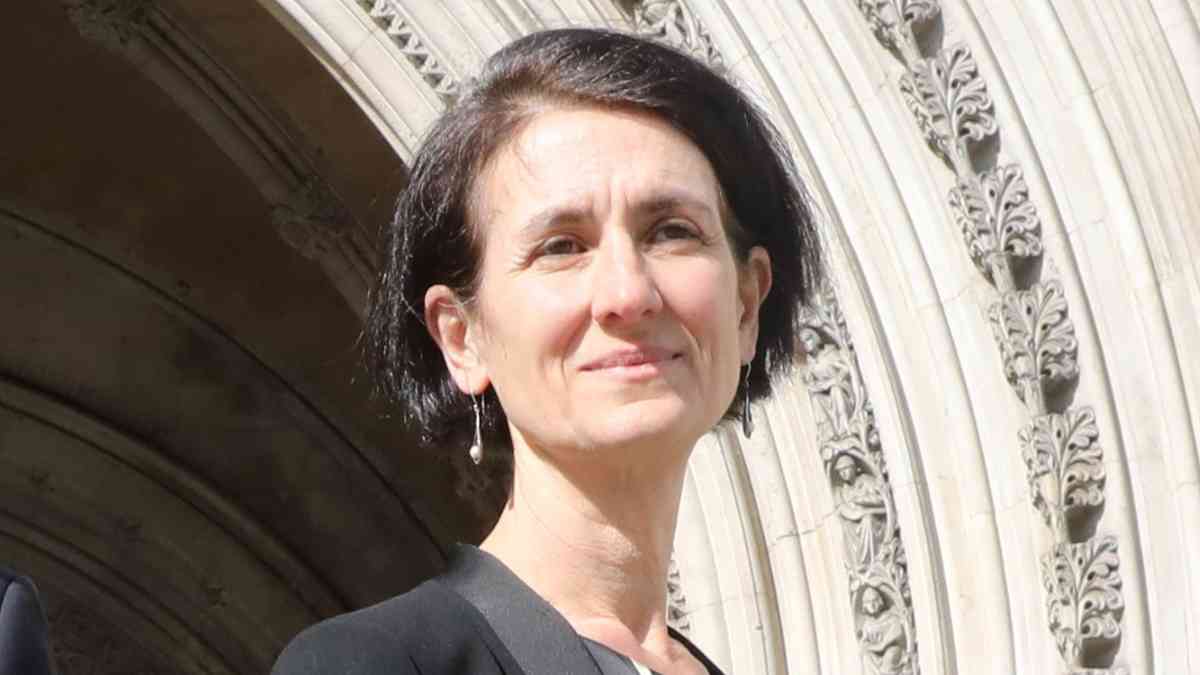Rebecca Hilsenrath: Champion of Human Rights and Public Accountability

Rebecca Hilsenrath is a name that has become synonymous with public service, equality, and legal reform in the United Kingdom. Known for her staunch advocacy of fairness, integrity, and accountability, Hilsenrath has carved out a remarkable career across legal, governmental, and human rights sectors. From her early work in private law firms to leading some of the UK’s most respected public watchdog institutions, she has remained deeply committed to championing those often left unheard.
As the former Chief Executive of the Equality and Human Rights Commission (EHRC) and most recently the Chief Executive of the Parliamentary and Health Service Ombudsman (PHSO), Rebecca Hilsenrath has shaped national conversations on equality, public health complaints, and justice. This article delves into her life, career trajectory, accomplishments, and the challenges she has faced, offering a comprehensive portrait of one of Britain’s most influential public figures.
Early Life and Legal Foundation
Rebecca Hilsenrath’s journey into public service began with a formidable academic and professional grounding. She read Law at Cambridge University, one of the most prestigious institutions in the UK, laying the foundation for a successful legal career. Following her graduation, she began practising law at the international firm Linklaters, a major City law firm with global reach. Her early years in private practice gave her a solid grounding in corporate and legal matters, but her passion for social justice soon led her in a different direction.
Seeking to apply her legal skills to the public good, Hilsenrath moved into roles within the Government Legal Service. This transition marked a turning point where her career path aligned more closely with civil service, policy-making, and advocacy for human rights.
Rise to Prominence at the EHRC
In 2015, Rebecca Hilsenrath became the Chief Executive of the Equality and Human Rights Commission, having earlier served as its Chief Legal Officer. The EHRC is the UK’s national equality body, tasked with upholding rights and enforcing anti-discrimination laws. Under her leadership, the organisation tackled several high-profile issues, including employment discrimination, gender pay gaps, accessibility, and racial inequality.
One of Hilsenrath’s key contributions was advocating for greater accountability among employers regarding pay transparency. Her support for enforcing gender pay gap reporting regulations helped expose systemic inequalities in the workplace and led to a broader national conversation about gender parity.
Her time at the EHRC wasn’t without controversy. The Commission occasionally faced criticism over its responses to politically charged issues, particularly relating to race and free speech. However, Hilsenrath consistently championed a balanced approach that upheld legal standards while pushing for systemic change. Her legal acumen and pragmatic leadership style helped navigate complex legal waters with clarity and consistency.
Chief Executive of the PHSO
In 2023, Rebecca Hilsenrath assumed the role of Chief Executive at the Parliamentary and Health Service Ombudsman. The PHSO plays a vital role in holding public bodies to account, especially within the NHS and central government departments. It investigates complaints from the public and ensures that grievances are addressed fairly and justly.
Her move to the PHSO came at a time when the public’s trust in public services—especially the health sector—was at a crossroads. With the NHS under increasing strain and complaints about care quality on the rise, her leadership brought much-needed transparency and rigour to how complaints were handled. She oversaw improvements in investigative procedures and promoted the NHS Complaint Standards, a framework aimed at harmonising how health bodies respond to concerns.
Focus on Patient Safety and Complaint Reform
One of the key areas where Rebecca Hilsenrath made an impact at the PHSO was in patient safety reform. She supported the 2025 Dash Review, a significant government-led evaluation of patient safety mechanisms in England. Hilsenrath strongly advocated for systemic learning from mistakes, calling on health organisations to treat complaints not just as problems to be resolved but as vital data points for institutional improvement.
Her statements reflected a broader philosophy: that real change in public services requires listening to the people who use them. She championed the idea that complaints, when handled well, serve as opportunities for feedback and progress. This approach helped shift the tone in how public health complaints are viewed and managed across the NHS.
Ethical Leadership Amid Controversy
Despite her many achievements, Rebecca Hilsenrath’s public service journey has not been entirely free of criticism. In mid-2025, media outlets brought renewed attention to an earlier incident in which she was alleged to have broken COVID-19 lockdown regulations in 2020 by travelling from London to a holiday home in Wales. Although this incident was investigated internally by the EHRC, the findings were not fully disclosed to the public, prompting further scrutiny and Freedom of Information requests.
While the Information Commissioner ruled that the EHRC must confirm the facts of the case, the full internal report remained withheld. Critics accused the EHRC of lacking transparency, while supporters argued that the matter had been dealt with internally and should not overshadow a lifetime of public service.
In interviews and public appearances since the controversy, Hilsenrath has remained composed and focused on her ongoing work, choosing not to dwell publicly on the issue. Her continued leadership roles and government appointments suggest that confidence in her professional capabilities remains high.
Advocate for Mental Health and Inclusive Leadership
Hilsenrath has also emerged as a voice in favour of mental health awareness, particularly in the workplace and public service institutions. Through interviews and podcast appearances, she has discussed the challenges of leadership, especially in high-pressure environments, and the importance of empathy, active listening, and team cohesion.
Her inclusive leadership style—often described as calm, strategic, and people-focused—has earned her praise from colleagues across departments. She emphasises the need for mental resilience and has encouraged institutions to invest in mental health resources, not only for the public but also for their employees.
Appointment to the Civil Justice Council
In April 2025, Rebecca Hilsenrath was appointed to the Civil Justice Council as an ADR (Alternative Dispute Resolution) member. This position underscored her expertise in complaint resolution and dispute management. The role also aligns closely with her previous work at the EHRC and PHSO, focusing on ensuring that civil justice is accessible, fair, and efficient.
Her appointment to such an influential advisory body was seen as a strong endorsement of her credentials in legal reform and public accountability. It also highlighted her ability to straddle both policy-making and operational delivery in public service sectors.
Legacy and Continuing Influence
Rebecca Hilsenrath’s influence extends beyond the organisations she has led. She has helped redefine how the UK approaches equality enforcement, complaints management, and transparency in public services. Through her legal expertise, dedication to justice, and calm leadership style, she has made a lasting impact on how public bodies interact with citizens.
In a landscape often plagued by bureaucracy and slow progress, Hilsenrath has stood out as a doer—someone who not only understands the law but is willing to challenge systems to improve outcomes for ordinary people. Her work has served as a reminder that institutions can change and that public service can be both principled and impactful.
Conclusion
Rebecca Hilsenrath represents a unique blend of legal intellect, strategic leadership, and moral purpose. Her decades-long commitment to justice, whether through fighting discrimination or championing patients’ rights, marks her as one of the most important figures in modern British public service. While her journey has included moments of controversy, her broader legacy remains rooted in the values of fairness, diligence, and the relentless pursuit of improvement.
In the coming years, it is likely that Hilsenrath’s voice will continue to influence national discussions on equality, healthcare, and legal reform. Whether through policy advisory roles, public commentaries, or continued leadership, her story is far from over. What is certain is that Rebecca Hilsenrath will remain a defining figure in the evolving narrative of public accountability in the United Kingdom.



